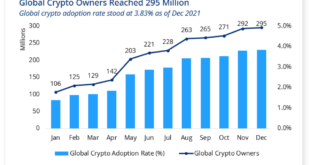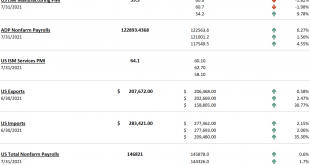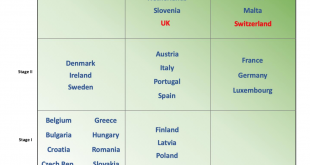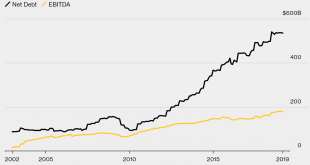The Swiss National Bank (SNB) has shared how it intends to “future-proof” the domestic payment ecosystem, outlining its ambition to leverage technologies and processes including tokenization and distributed ledger technology (DLT) to establish an “efficient, reliable and secure ecosystem” that’s geared towards “the future of cashless payments in Switzerland,” SNB governing board member, Andréa Maechler, said during an event on March 30, 2023. The payment system is...
Read More »Governments, International Bodies Ramp up Crypto Tax Regulations
Over the past year, governments and regulatory bodies from around the world have increased their focus on the taxation of the cryptocurrency industry, a trend that comes on the back of increasing investment, adoption and innovation in the space despite collapsing prices and high profile business failures, a new report by consulting firm PwC says. PwC’s 2022 Global Crypto Tax Report, released earlier this month, looks at the state of crypto taxation globally,...
Read More »Weekly Market Pulse: What Is Today’s New Normal?
Remember “The New Normal”? Back in 2009, Bill Gross, the old bond king before Gundlach came along, penned a market commentary called “On the Course to a New Normal” which he said would be: “a period of time in which economies grow very slowly as opposed to growing like weeds, the way children do; in which profits are relatively static; in which the government plays a significant role in terms of deficits and reregulation and control of the economy; in which the...
Read More »Switzerland and Estonia Among Europe’s Most Advanced Blockchain Ecosystems
In Europe, Switzerland, Estonia, Malta and Cyprus have the most advanced and mature blockchain ecosystems with well-developed startup scenes and high levels of regulatory maturity, a paper by the EU Blockchain Observatory and Forum says. More specifically, the European Commission (EC) blockchain think tank places Switzerland at the epicenter of blockchain activity, not only in Europe, but globally, noting the country’s massive blockchain industry of 800 dedicated...
Read More »Pretend Economists
In Foreign Affairs, Paul Romer criticizes “pretend economists” who pretend that economics—and they themselves—can answer normative questions on scientific grounds. He argues that “pretend economists” open the field to corruption. The alternative is to make honesty and humility prerequisites for membership in the community of economists. The easy part is to challenge the pretenders. The hard part is to say no when government officials look to economists for an answer to a normative...
Read More »“Digital Finance,” FuW, 2020
Finanz und Wirtschaft, January 4, 2020. PDF. Finance has been digital for decades. And both technology and preferences are only changing gradually. So, what triggers the abrupt changes in business models that we currently observe? The interaction between industry on the one hand and legislators and regulators on the other has changed. New entrants exploit synergies across areas that have so far been regulated by independent authorities, or not at all. While entrants think and act outside...
Read More »What Causes Loss of Purchasing Power, Report 7 Apr
We have written much about the notion of inflation. We don’t want to rehash our many previous points, but to look at the idea of purchasing power from a new angle. Purchasing power is assumed to be intrinsic to the currency. We have said that the problem with the word inflation is that it treats two different phenomena as if they are the same. One is the presumed effect of rising quantity of dollars. The other is the...
Read More »“Regulierung und Wettbewerb (Regulation and Competition),” FuW, 2017
Finanz und Wirtschaft, December 13, 2017. PDF. Ökonomenstimme, December 15, 2017. HTML. Regulation is about aligning private and social trade-offs. When banks cause negative externalities, good regulatory interventions increase banks’ costs. Externalities may differ across countries, so nothing suggests that regulation induced costs should be the same internationally.
Read More »Blockchain Based Equity Settlement in Australia
In the FT, Jamie Smyth reports that the Australian Securities Exchange plans to introduce a blockchain based equity clearing and settlement system. ASX will operate the system on a secure private network with known participants. The participants must comply with regulation, according to the ASX, which said its system had nothing to do with blockchain technology deployed by cryptocurrencies such as bitcoin.
Read More »Regulation, Economics, and Ideology
In an interview with The Independent, Jean Tirole discusses monopolies, regulation, the role of the state, the “Nobel syndrome,” and much more.
Read More » Swiss Economicblogs.org
Swiss Economicblogs.org





